In the figure shown, a ball without sliding on a horizontal, surface. It ascends a curved track up to height h returns. The value of h is h1 for sufficiently rough curved track to avoid sliding and is h2 for smooth curved track then
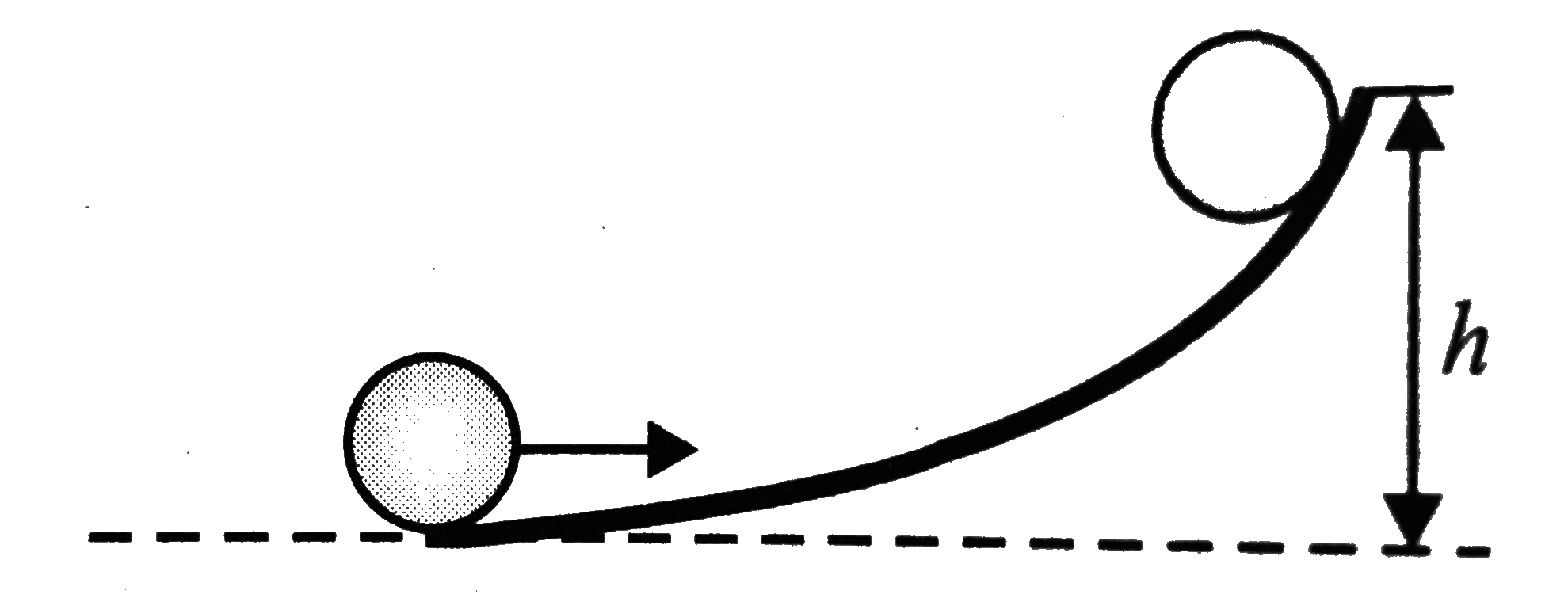
h1=h2
h1<h2
h1>h2
h2=2h1
The correct Answer is:C
If the track is smooth (case A), only transitional kinetic energy changes to the gravitational potential energy.
But, if the track is rough (Case B), both translational and rotational kinetic energy changes to potential energy. Therefore, potential energy (=mgh) will be more in case B than in case A hence h1>h2
hence (3)
Topper's Solved these Questions
Similar Questions
A disc of radius 0.1 m rolls without sliding on a horizontal surface with a velocity of 6ms−1 . It then ascends a smooth continuous track as shown in figure. The height upto which it will ascend is (g=10ms−2)
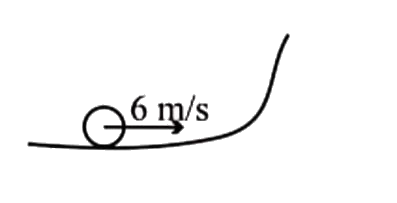
View SolutionIn the shown figure, a small mass m starts sliding down a smooth and stationary circular track. Which of the following graph best represents the variation of magnitude of the force applied by the track on the mass and the angle θ?
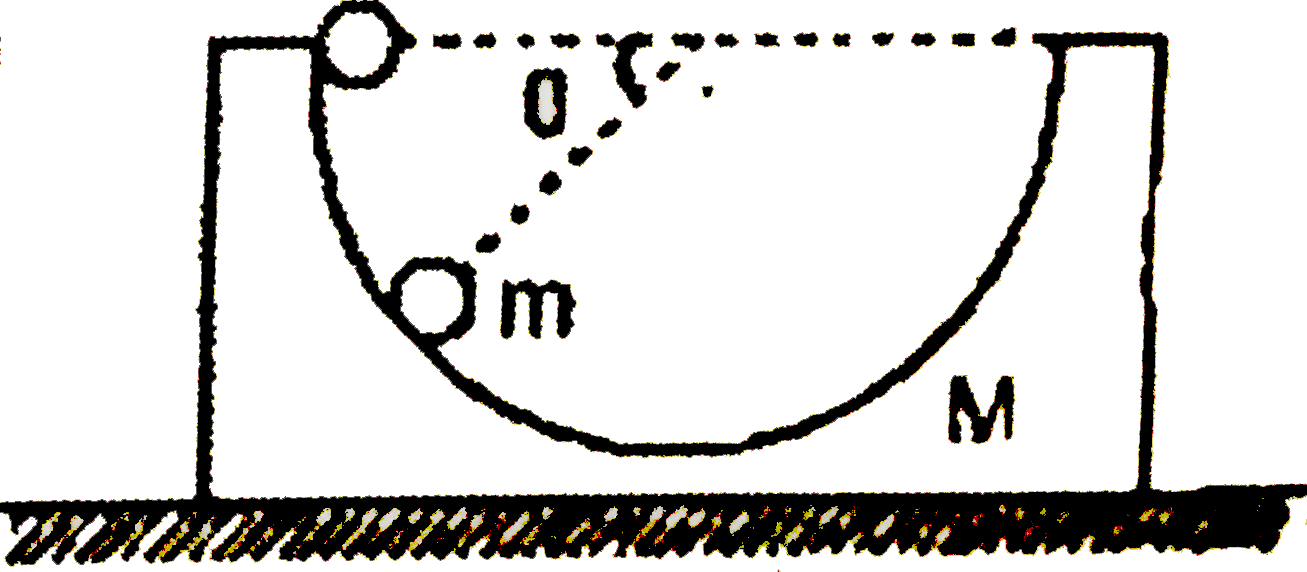
View Solution
Knowledge Check
A disc of radius 0.1m rolls without sliding on a horizontal surface with a velocity of 6m/s. It then ascends a smooth continuous track as shwon in figure. The height upto which it will ascend is (g=10m/s2)
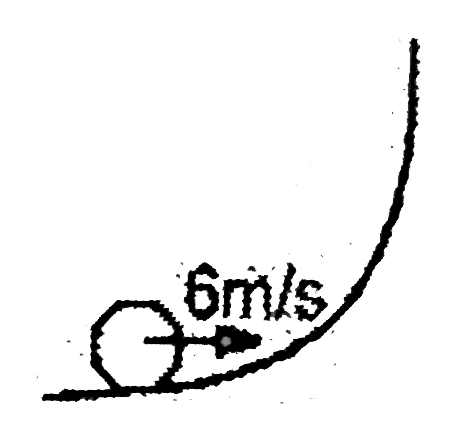 A2.4mB0.9mC2.7mD1.8m
A2.4mB0.9mC2.7mD1.8mA disc of radius 0.1 mrolls without sliding on a horizontal suirface with a velocity of 6 m/s. It then ascends a smooth continous track as shown in figure. The height upto which it will ascend is (g=10m/s2)
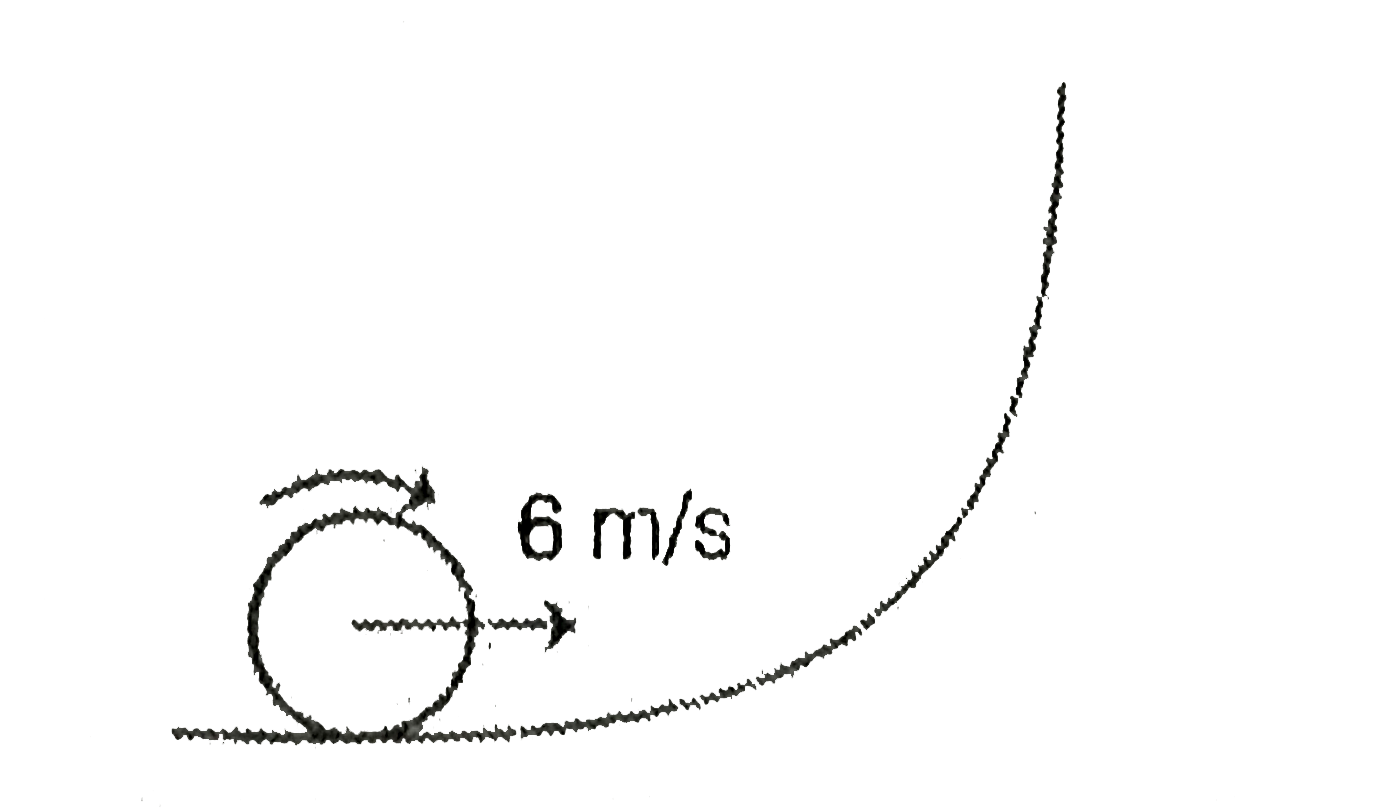 A2.4 mB0.9 mC2.7 mD1.8 m
A2.4 mB0.9 mC2.7 mD1.8 mA ball is dropped on a horizontal surface from height h. If it rebounds upto h2 after first collision then coefficient of restitution between ball and surface is
A1√2B12C14D12+√2
A ball is dropped on a horizontal surface from height h. If it rebounds upto height h2 after first collision then coefficient of restitution between ball and surface is
View SolutionIn the figure shown, a ring A is initially rolling without sliding with a velocity v, on the horizontal surface of the body B (of same mass as A). All surfaces arc smooth. B has no initial velocity. What will be the maximum height reached by A on B?
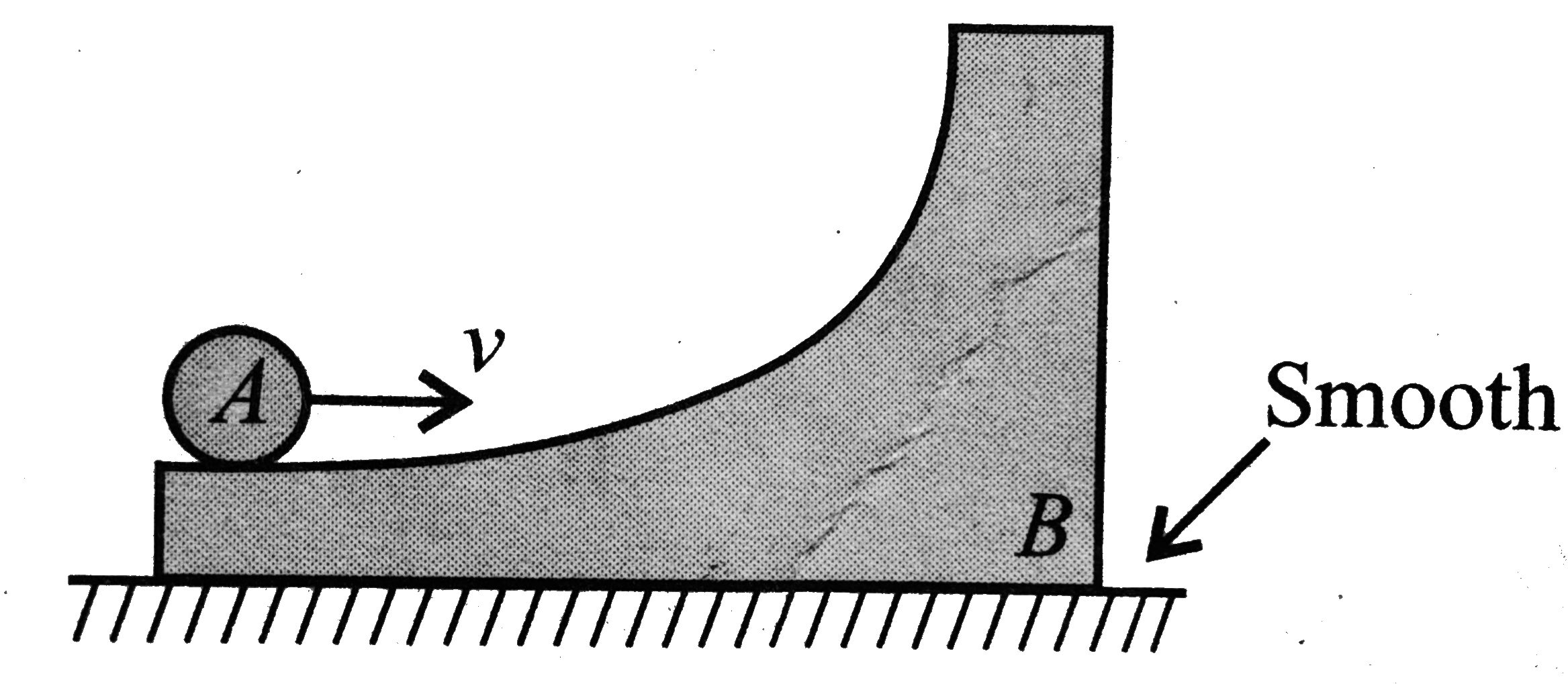
View SolutionIn the figure shown, a small ball of mass 'm' can move witgout sliding in a fixed semicircular track of radius R in vertical planet. It is released from the top. The resultant force on the ball at the lowest of the track is
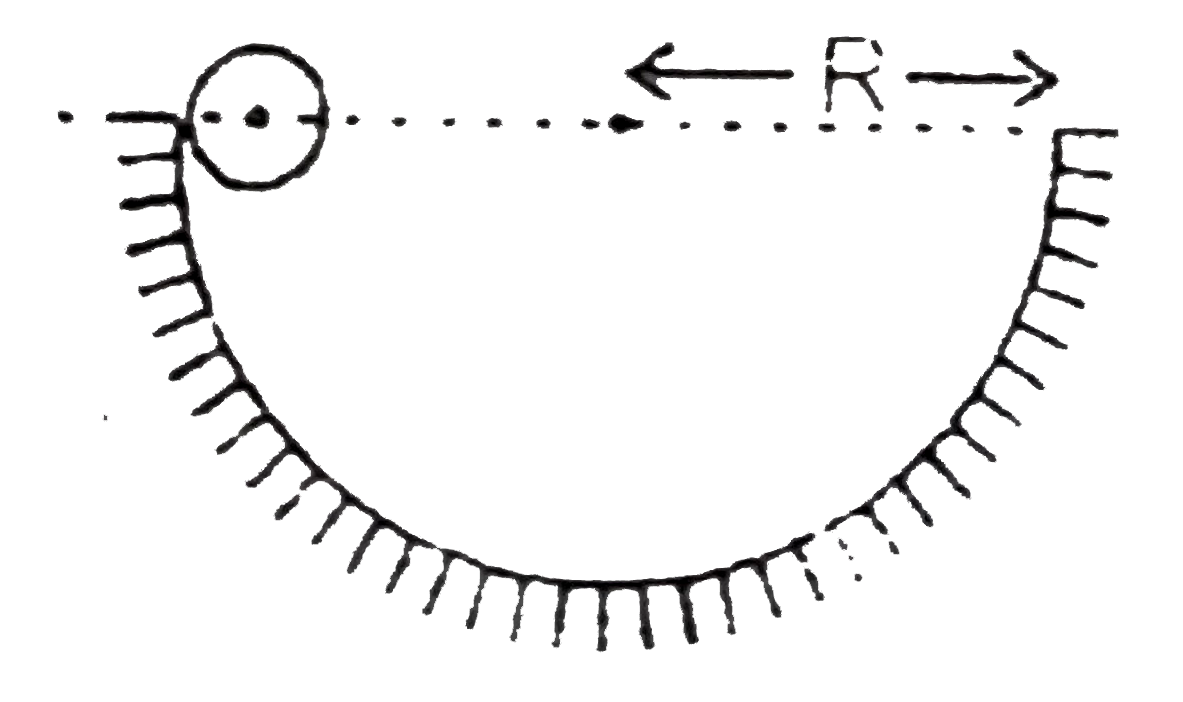
View Solution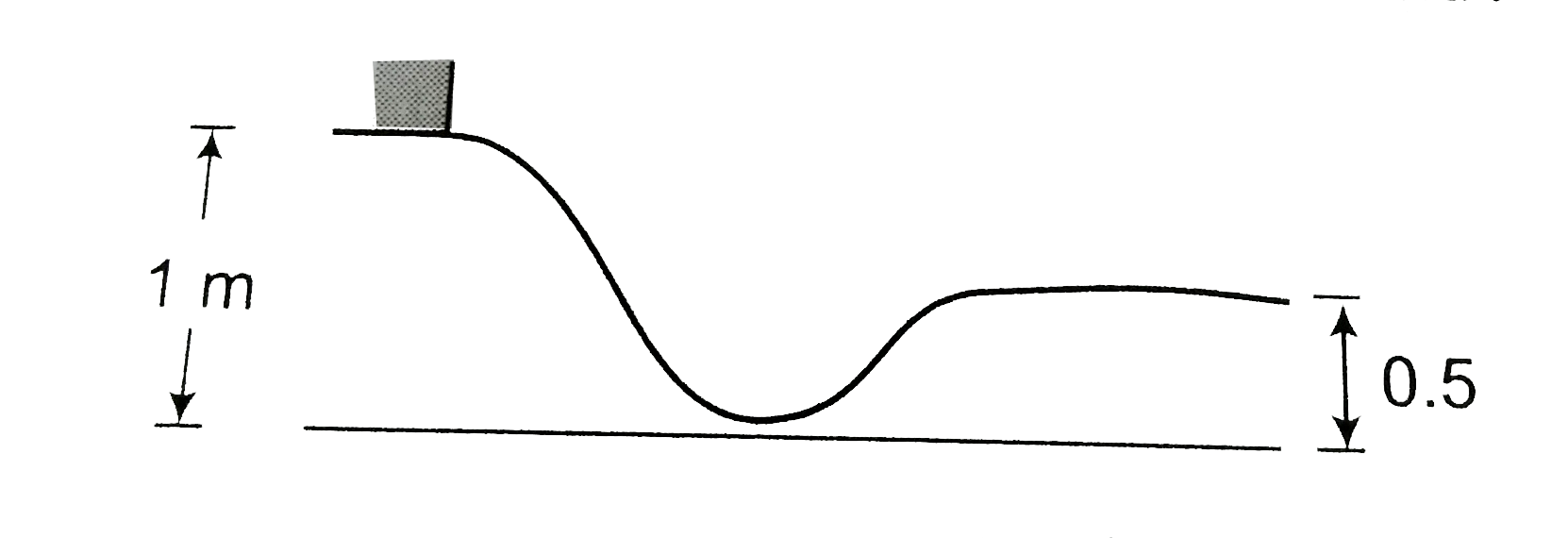
The figure shown a particle sliding on a frictionless track, which teminates in a straight horizontal section. If the particle starts slipping from the point A, how far away from the track will the particle hit the ground?
View SolutionThe mass m slides down the track and completes the vertical circle on the smooth curved surface. The minimum value of h will be:
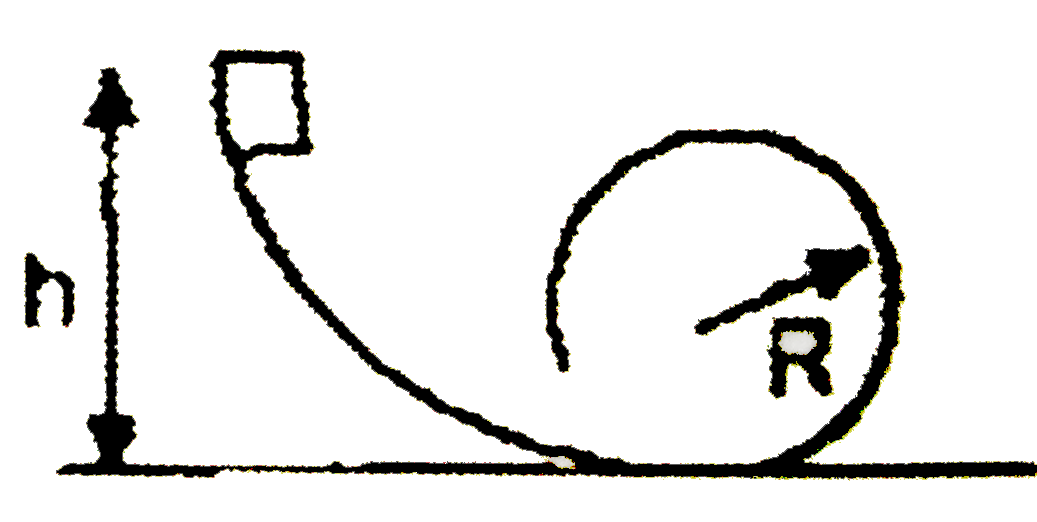
View Solution
